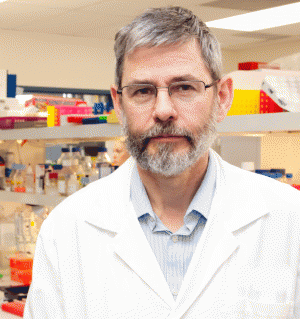
Screening offered for over 450 debilitating genetic conditions
For the first time in WA a screening program that can detect more than 450 disease genes is being offered to couples planning to have a baby.
The pilot project is being run by the Harry Perkins Institute of Medical Research, the WA Department of Health’s Genetic Services WA, PathWest and the Busselton Population Medical Research Institute.
Professor Nigel Laing AO, an internationally acclaimed genetics researcher who heads the Neurogenetic Disease Laboratory at the Harry Perkins Institute of Medical Research in Perth says screening is being offered to 250 couples in the Busselton region who want to know if they are carriers of more than 450 rare genetic diseases.
Rare diseases and malformations cause 51% of deaths in the first year of life. However, nearly 90 per cent of couples at risk of having babies with devastating genetic conditions have no family history of the disorders and no idea they are potential carriers.
The likelihood of a baby being born with just one of three commonly screened conditions, cystic fibrosis, fragile X syndrome or spinal muscular atrophy (SMA) which can cause paralysis, is comparable to the chance of having a child born with Down syndrome.
Professor Laing said, “One in 50 people are carriers for SMA, and if they partner with another carrier they have a one in four chance with every pregnancy of having a baby with SMA.
“The pilot project will test couples’ chances of passing on to their children severe genetic conditions including those that lead to death in the first years of life.
“At the Harry Perkins Institute of Medical Research, we have a team of scientists searching to identify disease genes that cause babies to be born with severe disabilities or to die before or soon after birth. So far we have identified the cause of more than 30 genetic conditions,” Professor Laing said.
Professor Laing is a world leader in investigating the genetic causes of muscle diseases in newborn babies and children. He has a muscle disease, the Laing distal myopathy, named after him.
Federal Health Minister Greg Hunt announced in May that he wants to make reproductive carrier screening available for free to every Australian couple who wants it so they can make informed reproductive choices. In this year’s Federal budget $20m was set aside for a future Federal initiative called Mackenzie’s Mission to research carrier screening.
The WA pilot study will act as a precursor for Mackenzie’s Mission. The results of the WA study will inform the Federal initiative and pave the way for WA’s role in the Federal project.
As part of the pilot, GPs in Busselton have been upskilled in genetic counselling. The GP’s are part of a team that includes researchers, genetic counsellors, clinical geneticists and molecular pathologists.
The pre-pregnancy carrier screening test involves a blood test and results are expected to be returned to the couple within four weeks. Couples interested in finding out more or registering can email [email protected]
The Zac Pearson Legacy
The Busselton pre-pregnancy screening project is being generously supported by the Zac Pearson Legacy.
The legacy fund was set up by Todd and Alisa Pearson to honour their son Zac who died suddenly and unexpectedly aged 22 months in 2009.
The Zac Pearson Legacy supports medical research in areas related to preventing early deaths in children.
The Pearson’s are pleased to be able to support medical research, particularly research that could reduce the chance of a family either losing a child to a rare genetic disease or to a sudden unexplained death.
The Zac Pearson Legacy previously supported the Child Mortality Database Project at the Telethon Kids Institute helping it secure a four year Federal Government grant.
Featured in
